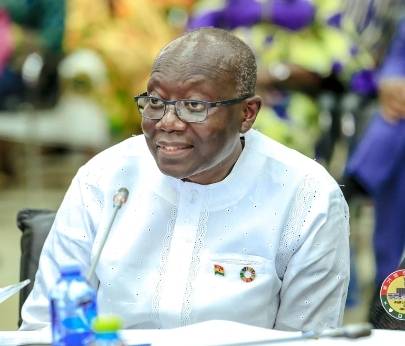In the realm of economic management, nations Constant find themselves at crossroads, making important decisions that can shape their developmental trajectory for years to come. Ghana, a West African nation known for its rich history and different source of culture, has recently found itself making one such consequential choice. The decision to return to the International Monetary Fund (IMF) comes as a response to worsening economic conditions to the directive of the President of the Republic, His Excellency Nana Addo Dankwa Akufo-Addo. This move has not only garnered attention on the international stage but has also ignited discussions about the country's economic development prospects and the road ahead.
Setting the Stage: Ghana's Economic Challenges
Ghana's economy, like many others, has been impacted by the global pandemic, disrupting trade, investment, and several sectors. The country's fiscal position has been strained, and the government's aspirations plans for growth have been hampered by a series of challenges, including high debt levels, inflationary pressures, and a weakening currency. President Akufo-Addo's directive to return to the IMF underscores the gravity of the situation and the need for swift action to stabilize the economy.
A Familiar Path: Revisiting IMF Assistance
For Ghanaians, the decision to seek IMF assistance might evoke memories of the country's previous interactions with the international financial institution. Ghana's history with the IMF has been a mix of successes and challenges. The country's first experience with the IMF's structural adjustment programs in the 1980s aimed to stabilize the economy but also brought about social hardships. The subsequent HIPC (Heavily Indebted Poor Countries) initiative in the 2000s aimed to relieve the burden of debt, leading to some degree of economic relief.
However, the current circumstances are distinct from those of the past. Ghana's re-engagement with the IMF raises questions about its implications for the economy, its development aspirations, and the lessons learned from previous interactions.
The Implications: Balancing Short-Term Stability and Long-Term Growth
Ghana's return to the IMF is not a decision taken lightly. While seeking assistance from international financial institutions can provide short-term stability, it also requires a delicate balancing act between immediate relief and the pursuit of long-term growth. The IMF's involvement often entails policy conditions that guide fiscal consolidation, monetary policy, and structural reforms. These measures, while essential for stabilizing the economy, can sometimes prove to be politically and socially challenging.
One crucial consideration is the potential impact on social welfare programs. Ghana has made significant strides in poverty reduction and social inclusion in recent years. However, the implementation of austerity measures, which might be recommended as part of IMF agreements, could potentially strain the government's ability to maintain social spending. The challenge lies in ensuring that short-term stabilization does not come at the cost of social progress.
Rebuilding Trust and Credibility: A Transparent Approach
Ghana's decision to return to the IMF can also be viewed as a commitment to transparency and accountability. Engaging with international institutions like the IMF signals the government's willingness to subject its economic policies to external scrutiny. This move can help rebuild trust among investors, lenders, and international partners, fostering an environment conducive to economic growth and investment.
Transparency is not limited to the government's dealings with international institutions but also extends to domestic stakeholders. A robust and inclusive dialogue about the reasons behind seeking IMF assistance, the projected impact, and the measures in place to safeguard social welfare is essential. Such transparency can foster a sense of ownership and understanding among the citizens, mitigating potential misconceptions and building consensus on the way forward.
Turning Challenges into Opportunities: Lessons from the Past
History has a way of pass valuable lessons and idea for the future. Ghana's pass experiences with the IMF offer insights into the nuances of navigating economic challenges and hardship. While the focus on fiscal discipline and structural reforms is paramount, there is also an opportunity to harness the potential of sectors that can drive sustainable growth.
One such sector is agriculture. Ghana's agriculture is a cornerstone of its economy, employing a essential portion of its workforce and contributing to food security. By investing in modernizing agriculture, improving value chains, and enhancing productivity, the country can not only create jobs but also bolster its resilience against external shocks.
Conclusion: Paving the Path to Resilient Prosperity
Ghana's return to the IMF in the face of worsening economic conditions is a pivotal moment in its developmental journey. This decision underscores the government's commitment to addressing the challenges head-on and charting a course toward stability and growth. While the road ahead might be challenging, it also presents an opportunity for Ghana to learn from its past, embrace transparency, and turn short-term stabilization measures into stepping stones for long-term prosperity.
As Ghanaians collectively change this juncture, the nation's rich history, cultural vibrancy, and the resilience of its people serve as a reminder that difficulties can be change into opportunities when met with determination, idea, strategic planning, and a shared vision for a more prosperous future. In doing so, Ghana can continue to stand as a beacon of hope for its citizens.




No comments yet
Be the first to share your thoughts!